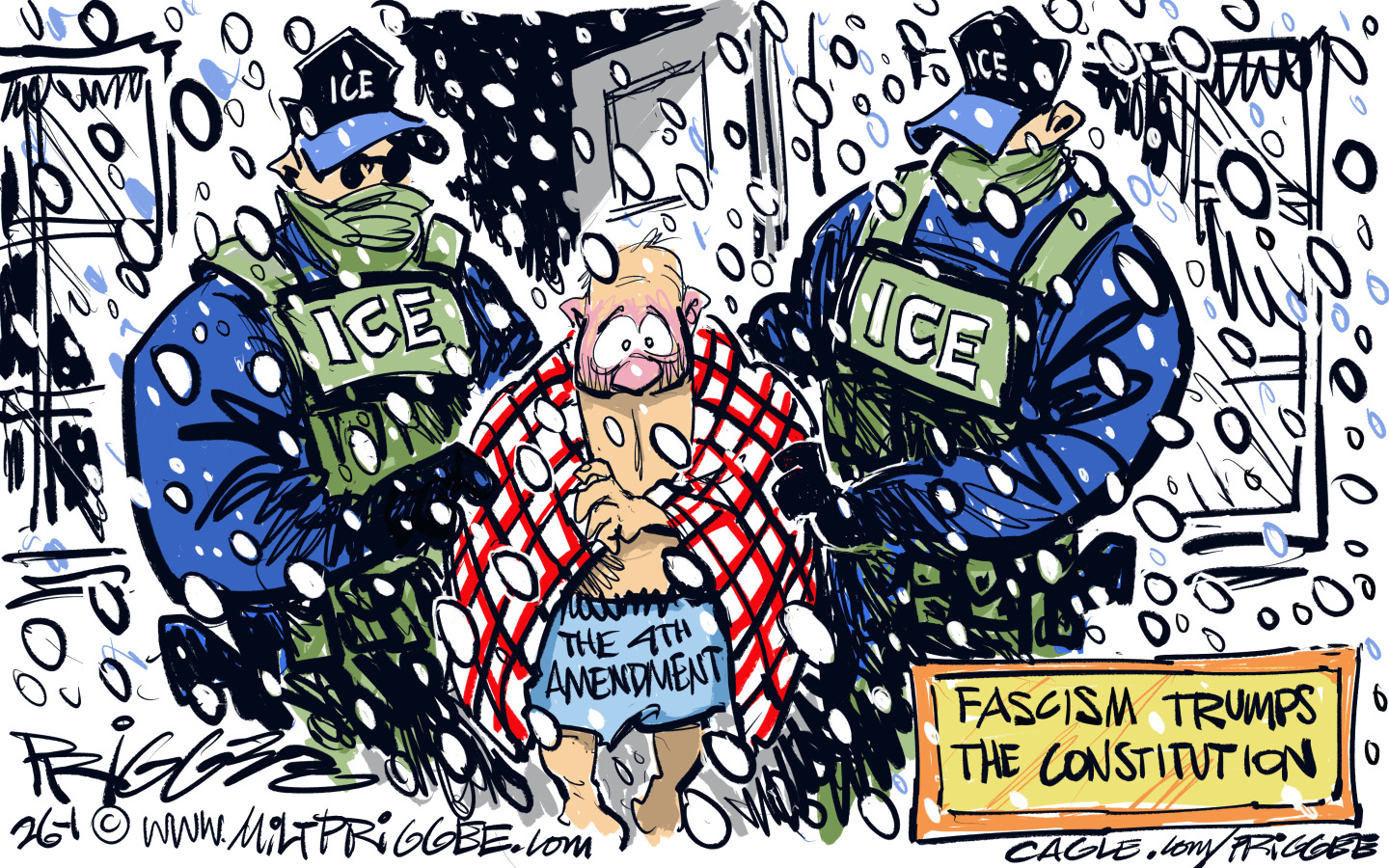Defining Obama's mandate
How much of the president-elect's agenda do voters want to enact?
Don't let Republicans tell you Barack Obama didn't win a mandate, said Jonathan Chait in The New Republic online. Conservatives insisted President Bush had a clear mandate when he won reelection with a much smaller margin of victory, and Bush certainly acted accordingly. Voters knew Obama planned to "make the tax code more progressive, reform health care, and the like," so Democrats should muster the courage to push that agenda.
Not so fast, said Ralph Reiland in the Pittsburgh Tribune-Review. Obama won precisely 1 percentage point more of the popular vote than Bush did in 2004. The needle didn't budge from voters' "center-right ideological self-identification," so there's no call for "turning America into a European welfare state or beating our swords into plowshares" or pushing our coal plants into bankruptcy.
It's pointless to deny that Americans just voted for change, said actor Robert Redford in The Huffington Post. And part of that change "was to move away from the failed energy philosophy of 'drill, baby, drill' to a more farsighted strategy."
The Week
Escape your echo chamber. Get the facts behind the news, plus analysis from multiple perspectives.

Sign up for The Week's Free Newsletters
From our morning news briefing to a weekly Good News Newsletter, get the best of The Week delivered directly to your inbox.
From our morning news briefing to a weekly Good News Newsletter, get the best of The Week delivered directly to your inbox.
"Voters want change—Obama's campaign message," said Amity Shlaes in the New York Post. "But the Democratic Party is widening the definition of change by the hour." And just as they did under Franklin Delano Roosevelt in the Great Depression, they'll use the financial crisis as justification for resurrecting government health care and other old parts of their social agenda that have nothing to do with the mortgage crisis.
A free daily email with the biggest news stories of the day – and the best features from TheWeek.com
-
 31 political cartoons for January 2026
31 political cartoons for January 2026Cartoons Editorial cartoonists take on Donald Trump, ICE, the World Economic Forum in Davos, Greenland and more
-
 Political cartoons for January 31
Political cartoons for January 31Cartoons Saturday's political cartoons include congressional spin, Obamacare subsidies, and more
-
 Syria’s Kurds: abandoned by their US ally
Syria’s Kurds: abandoned by their US allyTalking Point Ahmed al-Sharaa’s lightning offensive against Syrian Kurdistan belies his promise to respect the country’s ethnic minorities
-
 The billionaires’ wealth tax: a catastrophe for California?
The billionaires’ wealth tax: a catastrophe for California?Talking Point Peter Thiel and Larry Page preparing to change state residency
-
 Bari Weiss’ ‘60 Minutes’ scandal is about more than one report
Bari Weiss’ ‘60 Minutes’ scandal is about more than one reportIN THE SPOTLIGHT By blocking an approved segment on a controversial prison holding US deportees in El Salvador, the editor-in-chief of CBS News has become the main story
-
 Has Zohran Mamdani shown the Democrats how to win again?
Has Zohran Mamdani shown the Democrats how to win again?Today’s Big Question New York City mayoral election touted as victory for left-wing populists but moderate centrist wins elsewhere present more complex path for Democratic Party
-
 Millions turn out for anti-Trump ‘No Kings’ rallies
Millions turn out for anti-Trump ‘No Kings’ ralliesSpeed Read An estimated 7 million people participated, 2 million more than at the first ‘No Kings’ protest in June
-
 Ghislaine Maxwell: angling for a Trump pardon
Ghislaine Maxwell: angling for a Trump pardonTalking Point Convicted sex trafficker's testimony could shed new light on president's links to Jeffrey Epstein
-
 The last words and final moments of 40 presidents
The last words and final moments of 40 presidentsThe Explainer Some are eloquent quotes worthy of the holders of the highest office in the nation, and others... aren't
-
 The JFK files: the truth at last?
The JFK files: the truth at last?In The Spotlight More than 64,000 previously classified documents relating the 1963 assassination of John F. Kennedy have been released by the Trump administration
-
 'Seriously, not literally': how should the world take Donald Trump?
'Seriously, not literally': how should the world take Donald Trump?Today's big question White House rhetoric and reality look likely to become increasingly blurred